SUMMARY
This is AI generated summarization, which may have errors. For context, always refer to the full article.

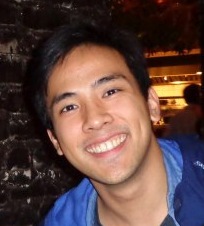 HIV and other STDs are spread between two people who have different statuses. What this means is that knowledge of your own status is a vital piece of the prevention puzzle.
HIV and other STDs are spread between two people who have different statuses. What this means is that knowledge of your own status is a vital piece of the prevention puzzle.
The Department of Health has raised concern about the growing number of HIV cases in the Philippines, particularly among men who have sex with men. The most recent report published online by the National Epidemiology Center says there were 295 new cases of HIV in October this year – a 48% increase from the number of cases in the same time last year.
The steady increase in new cases needs to be addressed, and here I advocate for and explain an important tool in the fight against HIV: testing and counseling.
For 3 months now, I have been volunteering as an HIV test counselor in San Francisco, California. I cannot put into words the emotional rollercoaster that this experience has had me endure.
Without exception, each client I have counseled shows up anxious, scared, and even disappointed. These emotions rub off on anyone very easily, which has made me admire my own mentors who have worked in this field for over 20 years all the more.
But my job doesn’t center on what I feel or think. I am there to focus on the client, to acknowledge his or her feelings, and to use the opportunity to help the client arrive at a risk-reduction plan.
The task of delivering life-changing news can seem daunting but the mission of my work is crystal clear. HIV prevention in many ways begins with knowing one’s status. This is not hard to imagine.
HIV and other sexually transmitted diseases (STDs) like chlamydia, gonorrhea, and HPV are transmitted between two people with different statuses. If the infected partner only knew his or her own status, then precautions could have be taken up – such as abstinence or condom use – to protect the uninfected partner.
Sexual education
This is, of course, a simplistic model of reality. In truth, there are many barriers to knowing one’s status. One is knowledge about risk. Is unprotected sex risky? What about oral sex? Does pre-ejaculate (or precum) also transmit HIV?
For these questions and many others, only sexual health education can help. Misinformation, however, as I’ve come to discover is still prevalent, and it exacerbates the stigma and marginalization already felt by the 21,000 Filipinos living with HIV today.
The testing and counseling session is a great space to educate. Some clients come in because they already know something about HIV and STDs – whether accurate or otherwise – and they visit the testing center after acknowledging their risks.
In such instances, it is best to ask a client what he or she already knows and to build on that. To bombard a person with information is counterproductive and to criticize a person’s choices is demeaning.
Other clients, on the other hand, come in with much more worry and concern. They’ve had a risky sexual encounter and don’t know if that incident was enough to contract an infection.
During such moments, it is best to reassure the client, and discuss what risk reduction strategies he or she can put in place moving forward. For instance, if a client has sex with partners he or she meets on the Internet, we can talk about the risk that such behavior entails and the ways in which he or she can protect his or her health. Do you talk about HIV status at all? What about discussing condom use? Do you drink or do drugs before sex?
What has worked
One question that has worked well for me before is to ask the client, “What have you tried before that has worked for you in keeping your risk down?” Phrasing the question this way allows the client to think about his or her own experiences and draw from his or her own strengths.
I have consistently been surprised by the novel yet simple things people have conjured and tried to protect their health. A former client told me that he likes exciting partners about condom use by carrying glow-in-the-dark and fruit flavored varieties with him wherever he goes. Another client is more subtle: when intending to bring up HIV status, he likes to start by talking about our testing center. This has worked wonderfully for him before. Most of his partners immediately open up about their own status, their last testing date, and their sexual preferences.
Another advantage of the counseling session is that we can link HIV positive individuals to care immediately. And we are not just talking about medical care here. Sometimes clients also want to avail of mental health services, substance abuse programs, and peer support groups.
One clause in the consent form that each of my client signs states that in case his or her test comes out positive, a linkage specialist will have to be called in to help determine the services that he or she will need. We also help clients go through the challenge of disclosing one’s HIV status to current partners, relatives, and friends.
Linkage to care is important primarily because it helps secure good quality of life among new patients. HIV is unlike the disease it was before and we have the scientific and medical community to thank for that. Amazing progress has been made in terms of medical and drug research.
We have anti-retrovirals that prevent mother-to-child transmission. A treatment called post-exposure prophylaxis or PEP is also gaining traction worldwide. PEP allows us to lower the risk of recently exposed individuals from developing a full-blown HIV infection by taking a few pills.
Undeniably, people with HIV today live long and happy lives as they deserve to.
Task shifting
A final plus in my work is that advocates, allies, and lay people are able to conduct the testing and the counseling session themselves. This allows the government to make HIV services available to more people as long as the basic facilities are present and there are people willing to volunteer their time. This strategy has also proven to be cost-efficient.
Formally, people working in public health call this practice task shifting. It entails the delegation of less-specialized responsibilities to paraprofessionals who can handle the job. Besides the technical term for it, this practice is nothing new, even for the Philippines.
The job that our community health workers and midwives take on is essentially task shifting. In other countries where sexual and reproductive health services are extremely scarce, the insertion and removal of IUDs, diaphragms, and other contraceptive implants are devolved to trained health workers.
The certification classes I attended, which lasted 4 days, taught me everything I needed to know to be a client-centered counselor. I am confident that many Filipinos will be able to become test counselors themselves and become valuable members in the movement against HIV.
Beyond tests
But testing alone is not a sure way to eradicate HIV or any disease for that matter. As one of my colleagues likes to put it, testing is but one spoke in the prevention wheel. The other spokes include condom distribution, needle exchange programs for injection drug users, education and counseling, awareness and advocacy campaigns, and many more.
Addressing the stigma surrounding HIV/AIDS is also a necessary, though difficult, step to take.
Whether or not we will overcome this disease depends mostly on our genuine desire to do so. I urge those who are passionate about public health and health equity to push for more access to testing and counseling, especially for populations at greatest risk. – Rappler.com
Anton Avanceña has been juggling several hats since graduating with a public health science degree in June. He currently works for the Sexually Transmitted Diseases (STD) Control Branch of the California Department of Public Health and the Santa Clara County Mental Health Department. During the weekends, Anton volunteers as an HIV test counselor at the UCSF Alliance Health Project (formerly AIDS Health Project). Anton migrated to the United States in 2010.
You might also like:
Add a comment
How does this make you feel?


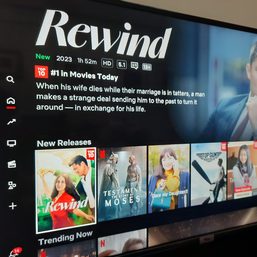



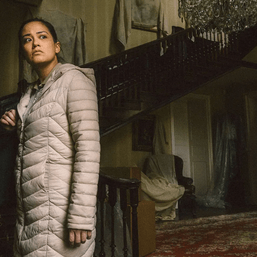


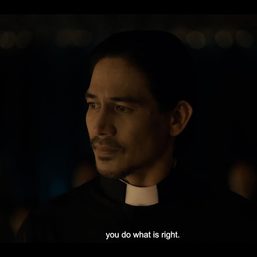





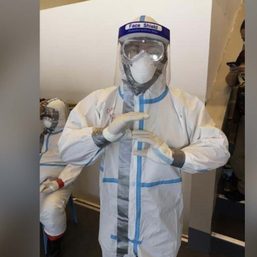
There are no comments yet. Add your comment to start the conversation.